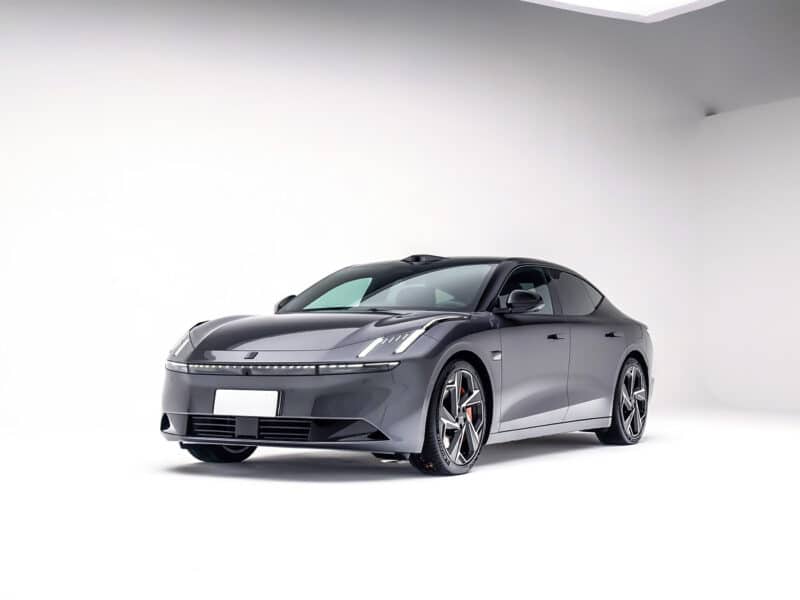Lynk & Co Z10 electric sedan will have up to 806km range
Ranges for the all-electric Lynk & Co Z10 (pronounced Z-one-zero) have been exposed by a government regulator. The forthcoming electric sedan will have four cruising ranges of 602, 702, 766, and 806 km according to version.
The two main deciders of the ranges are the battery pack sizes and whether the car is a dual motor or a single motor version. Battery pack capacities are 71 and 95 kWh.
When combined with previous listing information from MIIT (Ministry of Industry and Information Technology) we can make some predictions about the versions. Entry-level cars have a single 200 kW motor and the curb weight is 2,098 kg. The car comes with 19-inch wheels and has a range of 602 km. This is the only version to use the 71 kWh battery pack.
For low and medium-level spec versions they come with a 200 kW electric motor and use the 95 kWh battery pack. Curb weight is 2,275 kg and buyers can choose between 19 and 21-inch wheels.

Next medium to high-spec models come with a 310 kW single motor and a curb weight of 2,318 kg. They are available with 19 or 21-inch wheels. Strangely although this car uses the same 95 kWh capacity battery pack as the lower versions, range is now 806 km but not only is the weight heavier but the motor is more powerful as well.
Finally, there is a range topper that has a dual motor setup featuring the same 310 kW motor on the rear axle but now an additional 270 kW motor on the front axle. This version has a weight of 2,468 kg and only comes with 21-inch wheels. Range for this car is 702 km.
The Z10 uses silicon carbide motors with the dual motor version achieving 0-100 km/h acceleration time of 3.5 seconds. It is built on an 800V architecture platform and can add up to 573 km of range in 15 minutes with supercharging. All versions of the Lynk & C0 Z10 use lithium iron phosphate batteries.
Originally referred to by the E371 codename and then believed to be called the Zero the Z10 is expected to open presales in July and launch in August. It has dimensions of 5028, 1966, and 1468 mm and the wheelbase is 3005 mm making it a medium to large sedan. Drag coefficient is relatively slippery at 0.198 Cd thanks to aerodynamic features such as an active grill as well as a spoiler.
Inside the Z10 is a relatively conventional interior for an electric sedan. The dashboard is dominated by a large 15.4-inch infotainment screen and there is a narrow LCD instrument panel along with a head-up display. All seats gain heating, ventilation, and massage functions and the car has liberal use of leather and suede material. Audiophiles benefit from a Harman Kardon audio system which includes WANOS panoramic sound technology with 7.1.4 channels 23 speakers and 1600-watt power. The Z10 system’s are powered by a Qualcomm Snapdragon 8295 chip which runs the Flyme Auto system developed in partnership with Meizu.



At least some versions of the car are equipped with Lidar and use an Nvidia Orin-X chip. These cars will offer highway NOA (navigation on autopilot) along with urban NOA and these do not rely on high precision maps.
Underneath the Lynk Co Z10 is the SEA (Sustainable Experience Architecture) platform which is used by various Geely Group cars including Lotus, Smart and Zeekr. Torsional rigidity is 45,000 Nm/deg. Highest spec versions of the Z10 come with dual chamber air springs and electromagnetic suspension.
Editor’s note:
We believe MIIT has got the weights and ranges the wrong way round. We can’t understand why a heavier car, with a more powerful motor but the same battery pack would have a greater range.
Sources: MIIT, Autohome



